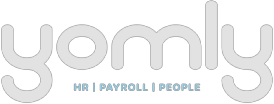The Difference Between HRIS and HRMS: How It Impacts Your Business
Grasping the intricacies of HRIS and HRMS is not just semantics; it’s about choosing the right tools to elevate your HR functions and, by extension, your entire business. In a rapidly evolving corporate landscape, the tools you select can make a significant difference in operational efficiency, employee satisfaction and overall business performance. With countless vendors and solutions available, knowing the nuances between HRIS and HRMS becomes not just beneficial, it is essential. These systems can dictate how smoothly your HR department runs, the kind of data you can gather for strategic decisions and even how well you comply with industry regulations. In this article, we will dissect what HRIS and HRMS are, spotlight their key differences and guide you through their specific complexities, to aid you in making an informed decision for your organisation.

An Overview Of HRIS
Before we can compare the two software types, we first need to explain their individual properties. First up is HRIS. Human Resource Information Systems (HRIS) focuses predominantly on data management and data analytics. Their functionality usually covers employee data storage, compliance reports, performance tracking and employee training modules. An HRIS can effectively manage information, but it lacks the more extensive features that HRMS systems offer in areas like payroll and recruitment.
What You Need To Know About HRMS
The next piece of software we will examine is HRMS. Human Resource Management Systems (HRMS) are more expansive, covering a wider array of tasks and functionalities. In addition to information management, لنظام إدارة الموارد البشرية handles payroll, benefits administration, time tracking and applicant tracking. It is especially beneficial for organisations that want a comprehensive tool, encapsulating a wider spectrum of HR responsibilities. Cloud-based HR software, such as Yomly’s innovative platform, further streamlines this experience.
How They Differ And The Impact On Your Business
Comparing the two different types of software is relatively straightforward, but delving deeper reveals critical differences that can have a lasting impact on your organisation. HRIS systems are leaner, focusing on essential data management and basic reporting. They’re ideal for businesses that need a straightforward solution to manage employee information, conduct basic analytics and ensure compliance with regulations.
On the flip side, HRMS offers a broader spectrum of capabilities, from قدرات برنامج المرتبات to benefits administration, making it a more comprehensive tool for HR functions. It’s not just about storing employee data; it’s about managing every aspect of their employment lifecycle within the organisation. When choosing between the two, it’s crucial to weigh these distinctions against your specific operational needs. A mismatch between system capabilities and business requirements can result in inefficiencies and increased costs, making the choice between HRIS and HRMS a pivotal business decision.
Where To Find Top HRIS And HRMS Solutions
Finding the right HRIS or HRMS solution for your needs is surprisingly easy, but that doesn’t mean you should make a hasty decision. The market offers a myriad of packages, each tailored for different organisational requirements, so due diligence is crucial. This is especially true if you’re operating in the UAE, where regulatory compliance and localisation features should be top considerations. For those seeking an adaptable system, Yomly offers integrated HR and Payroll solutions that can evolve along with your business’s changing needs.
Make the smart choice today; elevate your HR management with the right software.
